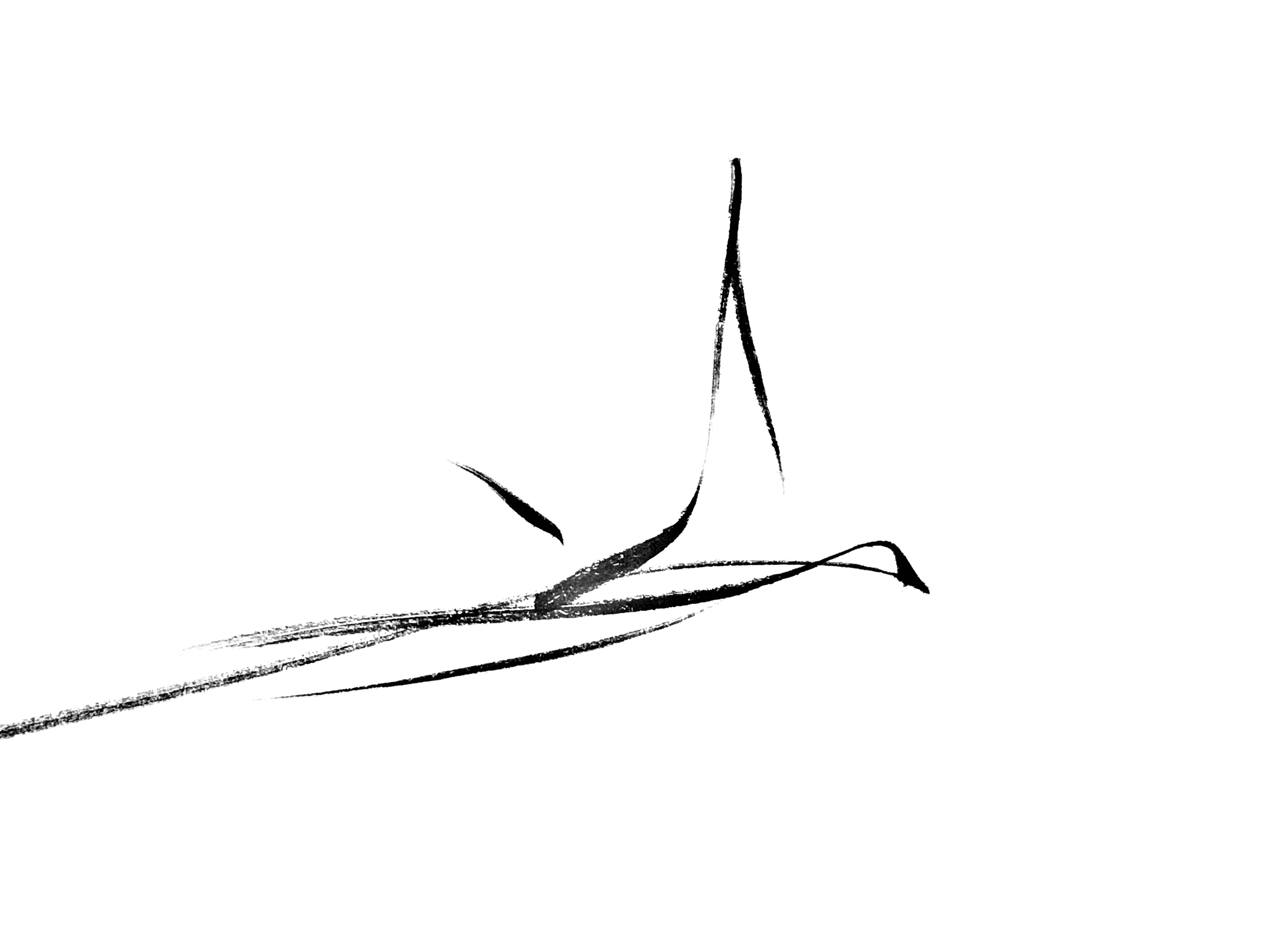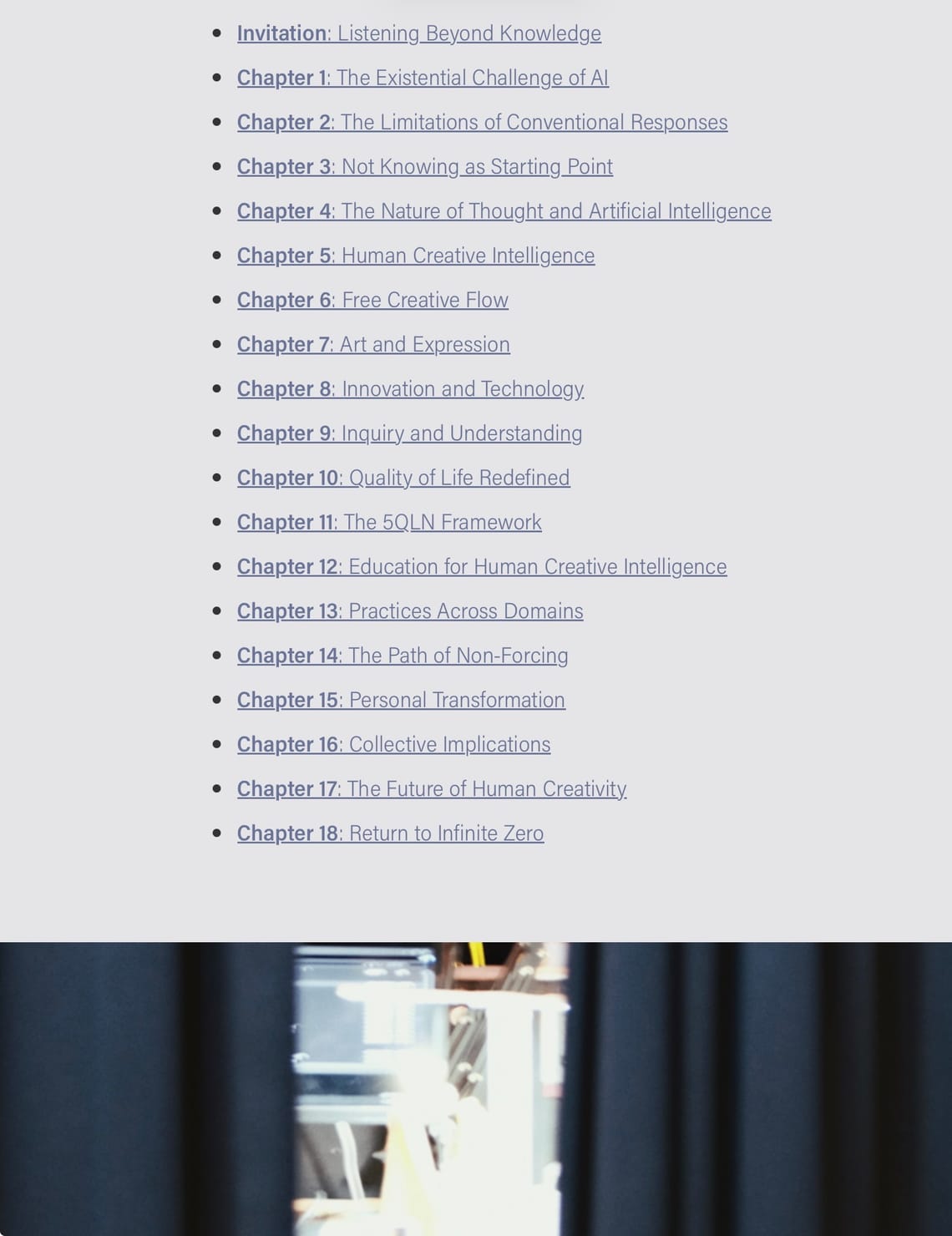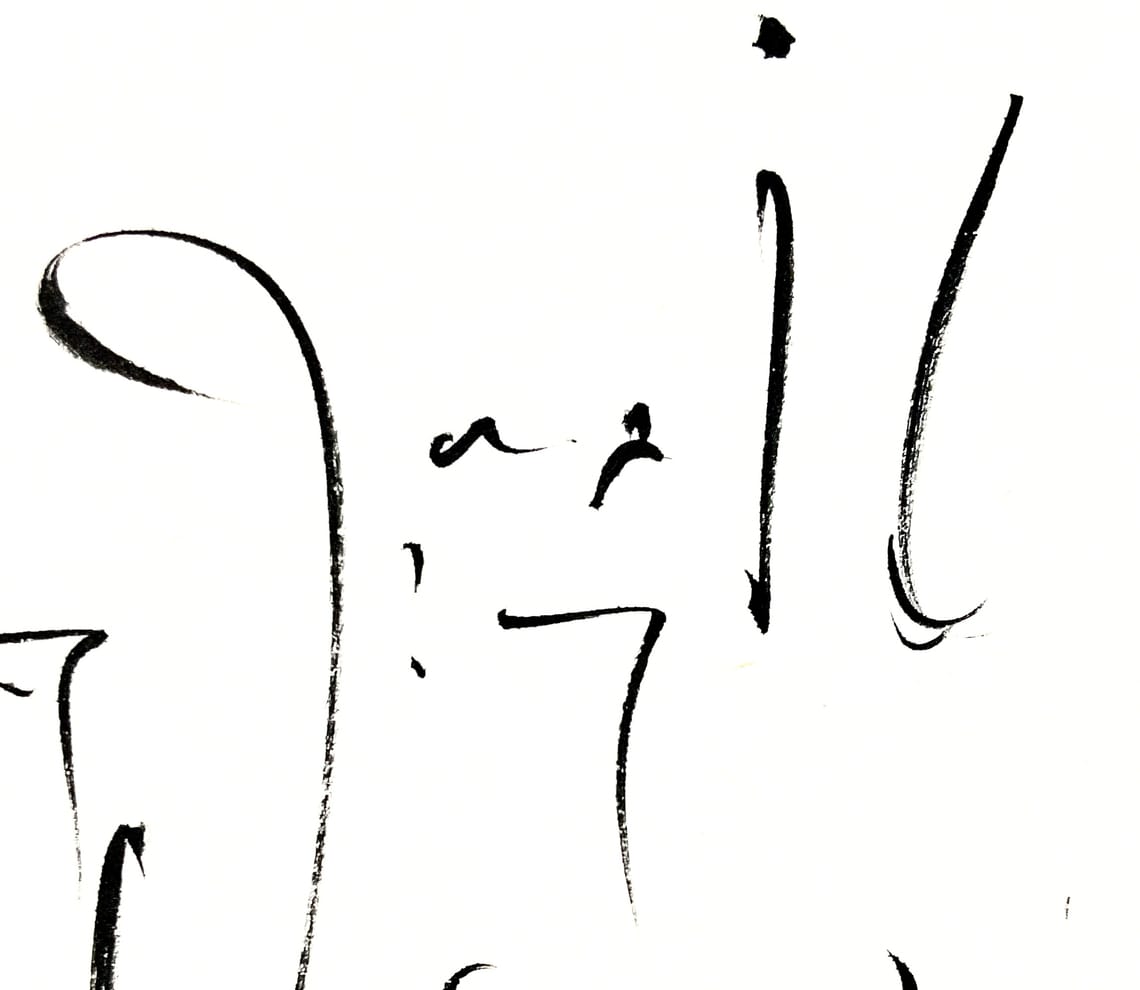Overview
"FCF - Start From Not Knowing" is a thought-provoking book that explores humanity's unique creative potential in the age of artificial intelligence. The book presents a philosophical and practical framework for how humans can maintain their creative relevance and flourish by embracing what the author calls "Not Knowing" — a state of radical openness from which authentic creativity emerges.
Core Thesis and Purpose
The book's central argument is that as AI increasingly masters the domain of knowledge-based creativity, humanity's unique value lies not in competing with machines on their terms (computation and knowledge manipulation), but in accessing a fundamentally different dimension of creative intelligence. This creative intelligence arises not from what we know, but from the boundless potential of "Not Knowing" — a state of radical openness and receptivity.
According to the author:
"We live in a time of profound technological acceleration. Artificial intelligence mirrors, extends, and in many domains surpasses the capabilities of human thought, computation, and knowledge-based creativity. ... This book explores a different territory – one that begins where conventional knowledge and computation reach their limits."
Source
Key Concepts
- Free Creative Flow (FCF)
The book introduces Free Creative Flow as a current of creativity that emerges not from knowledge or effort, but from a state of openness. This is described as effortless, original creativity that produces genuine novelty rather than recombinations of existing ideas. - Human Creative Intelligence (HCI)
Distinct from AI and even conventional human thought, Human Creative Intelligence is presented as an emergent, direct form of intelligence rooted in perception and resonance rather than computation or knowledge processing. - Infinite Zero (∞°)
This concept represents the boundless potential or space of "Not Knowing" from which all authentic creativity and novelty springs. It's positioned as the source that AI cannot access, as AI operates exclusively within the realm of existing knowledge. - The 5QLN Framework
The book introduces a practical framework designed to help navigate the landscape of creativity, especially in relation to AI. This framework provides language and processes for engaging with Free Creative Flow in various contexts.
Read Online
Book Structure:
The book is systematically organized into 18 chapters that build upon each other:
- The Existential Challenge of AI: Examines how AI disrupts our assumptions about human uniqueness.
- The Limitations of Conventional Responses: Critiques common strategies like productivity competition and upskilling.
- Not Knowing as Starting Point: Establishes radical openness as the foundation for genuine creativity.
- The Nature of Thought and Artificial Intelligence: Analyzes how both operate on existing knowledge.
- Human Creative Intelligence: Explores a form of intelligence beyond computation.
- Free Creative Flow: Details how creative energy manifests when unobstructed.
- Art and Expression: Applies FCF principles to artistic creation.
- Innovation and Technology: Contrasts knowledge-based and FCF-based innovation.
- Inquiry and Understanding: Presents a mode of questioning starting from unknowing.
- Quality of Life Redefined: Centers well-being in inner experience rather than external metrics.
- The 5QLN Framework: Offers practical tools for implementing FCF principles.
- Education for Human Creative Intelligence: Reimagines learning beyond knowledge transfer.
- Practices Across Domains: Extends FCF to relationships, work, and daily life.
- The Path of Non-Forcing: Advocates allowing creative energy to flow naturally.
- Personal Transformation: Describes liberation from knowledge-based limitations.
- Collective Implications: Envisions societal transformation based on FCF values.
- The Future of Human Creativity: Argues for a complementary partnership between humans and AI.
- Return to Infinite Zero: Concludes with an invitation to perpetual, open-ended inquiry.
Applications and Implications
The book explores how FCF principles can transform multiple domains:
- Art & Expression: Meeting the blank page with openness rather than preconception.
- Innovation & Technology: Partnering with AI rather than being replaced by it.
- Education: Shifting from knowledge transfer to cultivating comfort with not knowing.
- Quality of Life: Centering well-being in freshness, aliveness, and resonance rather than external success.
- Personal Growth: Finding liberation from knowledge-based conflict and limitation.
An Invitation Rather Than a Declaration
The author positions the book not as offering mastery over "not knowing" (which would be contradictory), but as an invitation to exploration:
"To claim mastery over 'not knowing' would be an absurdity. Instead, consider this an invitation. It is an invitation to a shared exploration, drawing from reflections, practices, observations, and a framework designed to help navigate this inner landscape, especially in our relationship with burgeoning AI."
Source
Conclusion
"FCF - Start From Not Knowing" offers a timely response to the existential questions raised by artificial intelligence, proposing that humanity's unique value lies not in competing with AI on its terms, but in accessing our innate capacity for creativity that emerges from a state of openness. Through philosophical exploration and practical frameworks, the book invites readers to cultivate Free Creative Flow as a path to authentic expression, innovation, and fulfillment in the age of AI.
The book can be freely accessed at -





